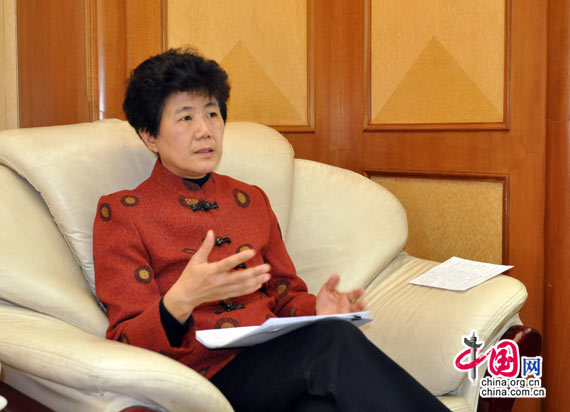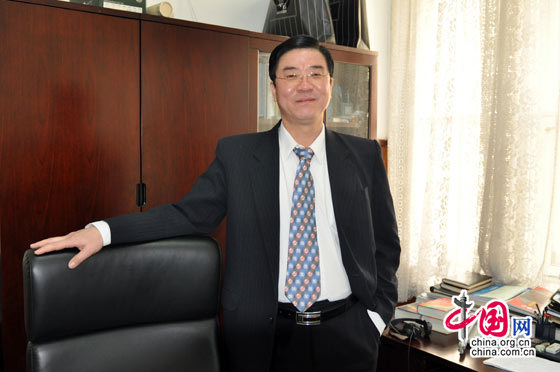Syrian unrest 'won't affect' Sino-Arab relations
- By Zhou Jing
 0 Comment(s)
0 Comment(s) Print
Print E-mail China.org.cn, February 24, 2012
E-mail China.org.cn, February 24, 2012
|
|
|
Vice President of the United Nations Association of China, Zhang Xiao'an, speaks in an exclusive interview with China.org.cn on February 20, 2012. [Zhou Jing/China.org.cn] |
The recent political crisis in Syria and the threat of unrest in other Arab nations will not affect China's cooperation with the Arab world, international relations experts told China.org.cn in recent interviews.
"Sino-Arab relations won't be affected in general," said Zhang Xiao'an, vice president of the United Nations Association of China on Monday when commenting on China's vote against a draft resolution at the United Nations General Assembly on Feb. 16 that endorsed the Arab League plan for the Syrian president to step down.
Syria has been plagued by an 11-month-long political crisis. The UN General Assembly on Feb. 16 adopted a draft resolution supporting political transition in Syria with a vote of 137-12 with 17 abstentions.
Earlier this month, China received a delegation from the National Coordination Body for Democratic Change (NCB), the largest opposition group in Syria. The NCB stated their opposition to external interference and internationalization of the Syria situation. The body also advocated political transformation and hoped to resolve the growing crisis in Syria through dialogue within the Arab framework, said Dong Manyuan, vice director of the China Institute of International Studies.
|
|
|
Dong Manyuan, vice director of the China Institute of International Studies [Zhou Jing/China.org.cn] |
"China is making efforts to persuade both sides [the Syrian government and the opposition forces] to hold talks to settle the crisis." Dong said.
"China had to vote [against the draft resolution] independently," Dong said. "Our appeal was not respected and did not get the correct feedback from some countries."
Chinese diplomats are making efforts to ensure peace and stability in the region. Chinese Vice Foreign Minister Zhai Jun visited Damascus on Feb. 17-18 to try to persuade the Syrian government to listen to the voices of the people and adopt reforms. Also, Chinese Middle East envoy Wu Sike visited Israel, Palestine and Jordan this week, and former Chinese Ambassador to Syria Li Huaxin also visited Saudi Arabia and Qatar earlier this month.
China does not want to see humanitarian crises erupt in the Arab world and hopes that countries will work together to ensure regional stability and safeguard the livelihood of civilians, Dong said.
Relations between China and Arab countries have deep roots, beginning in the 1950s and strengthened by the Sino-Arab Cooperation Forum in 2004. The two sides have developed a comprehensive agenda for political, economic and cultural exchange, Zhang said.
Dong echoed Zhang's comments on Tuesday, expressing his belief that the long-term friendship between China and Arab nations would continue to bear fruit for both sides.
Chinese aid to Arab nations has contributed to strengthening ties in recent years, Dong said, citing the benefits of Chinese medical exchanges and joint Sino-Arab collaboration in constructing the Mecca-Medina high-speed rail, Dubai Palm Island and the Cairo International Convention and Exhibition Center. China has been providing aid to the Arab world since the 1950s.








Go to Forum >>0 Comment(s)